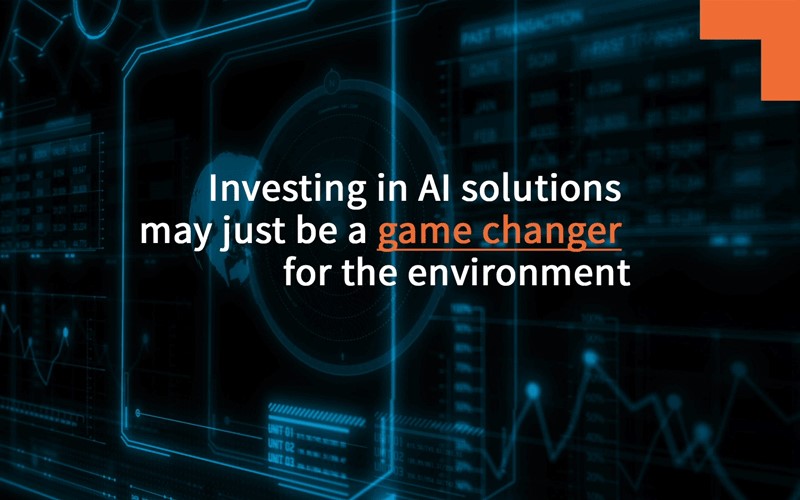Imagine a dashboard for Earth—a little like the one in your car. Only instead of monitoring gas mileage and temperature controls, this one reports real-time data on deforestation, crop failures, weather patterns, natural disasters and rising sea levels around the world.
Backed by smart computers capable of performing tasks that would normally require a human brain, and cloud computing facilities that reduce the environmental impact of these computational requirements, AI systems can produce the kind of up-to-the-minute analysis that enables scientists to develop better and faster solutions to climate change-related problems.
Climate change has been referred to as one the most pressing issues of our time, and yet, for many of us, making individual changes toward a sustainable future feels like a tiny drop in a giant bucket. Investing in AI-powered solutions just might be a game changer.
How AI Powers Climate Change Solutions
The World Economic Forum reported 8 key ways AI can help save the planet, looking at self-driving cars guided by AI applications that are optimized to reduce emissions, intelligent cities that are built to minimize resource dependencies, and smart disaster response designed to lessen vulnerabilities and improve recovery outcomes as a few examples.
The possibilities are truly endless when it comes to engineering solutions for all of the factors contributing to — and resulting from — climate change.
Overcoming the Hurdles of Smart Technology
For example, according to GreenBiz, training AI systems to understand data well enough to answer questions and make recommendations uses “five times the lifetime emissions of the average U.S. car.”
Putting Your Money to Work for the Earth
If you’re interested in putting your investment funds toward climate change solutions, investing in companies working to further AI technologies with software, processors, memory and storage, or those using AI to further climate change solutions, is a powerful way to take action, according to Genus’ director of sustainable investments, Mike Thiessen. “Using our investments, we really can have an effect on the climate crisis and we can significantly reduce our carbon footprint,” he says.
Using our investments, we really can have an effect on the climate crisis and we can significantly reduce our carbon footprint.
Mike Thiessen
With impact investing, you can activate your entire portfolio or a portion of your portfolio toward climate impact, and generate better total returns when you consider the social and environmental benefits you’re helping to power.
Ready to use your investment portfolio to make a positive impact? Learn more about our Fossil Free and impact investment solutions or contact us to chat about a personalized plan to power climate change solutions.











